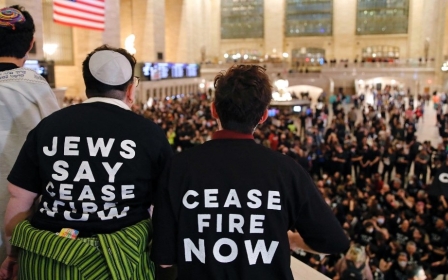What does the UK's new definition of 'extremism' mean for British Muslims
Published date: 1 May 2024 10:35 BST
|
Last update: 4 months ago
Is the definition of ‘extremism’ out of date?
In March, the UK government announced it was re-defining what it describes as “extremism”, citing a rise in both “Islamism and Nazism” in British society.
It was announced in parliament by Michael Gove, the levelling-up secretary - who stated that the new definition aims to “counter extremism and religious hatred”. He says this has been on the rise in recent years, especially since 7 October when the events in Israel and Gaza triggered months of mass protests in London and other cities around the world.
Gove has been deeply influential in shaping the UK’s counter-terror policies over the last two decades, and has long argued that western governments are far too accommodating to Islamism and political Islam.
He now believes the existing state mechanisms for tackling extremism aren’t going far enough - and that groups who are operating lawfully, but who are “seeking to replace our democracy with an Islamist and Nazi society respectively” need to be isolated and controlled.
So who is he talking about? Well, he’s already name dropped a few groups in parliament - Cage, Mend and the Muslim Association of Britain - all British Muslim organisations.
The new definition, which has not yet been defined legally, has been slammed by community groups of all backgrounds. Some say it’s a lazy front to go after the Gaza protest movement. Others say it will have chilling effects on free speech and religious freedom in the UK.
This week on the Big Picture, we speak to Anas Altikriti - a founder of the Muslim Association of Britain, and one of its former presidents. He now heads the Cordoba Foundation - a think tank that aims to "bridge the gap of understanding between the Muslim world and the West".
Altikriti responds to this new definition of extremism, why his own organisation was singled out, and what it means for British Muslim life in the future.
Subscribe and listen to The Big Picture on all podcast platforms: https://thebigpicture.buzzsprout.com/
In March, the UK government announced it was re-defining what it describes as “extremism”, citing a rise in both “Islamism and Nazism” in British society.
It was announced in parliament by Michael Gove, the levelling-up secretary - who stated that the new definition aims to “counter extremism and religious hatred”. He says this has been on the rise in recent years, especially since 7 October when the events in Israel and Gaza triggered months of mass protests in London and other cities around the world.
Gove has been deeply influential in shaping the UK’s counter-terror policies over the last two decades, and has long argued that western governments are far too accommodating to Islamism and political Islam.
He now believes the existing state mechanisms for tackling extremism aren’t going far enough - and that groups who are operating lawfully, but who are “seeking to replace our democracy with an Islamist and Nazi society respectively” need to be isolated and controlled.
So who is he talking about? Well, he’s already name dropped a few groups in parliament - Cage, Mend and the Muslim Association of Britain - all British Muslim organisations.
The new definition, which has not yet been defined legally, has been slammed by community groups of all backgrounds. Some say it’s a lazy front to go after the Gaza protest movement. Others say it will have chilling effects on free speech and religious freedom in the UK.
This week on the Big Picture, we speak to Anas Altikriti - a founder of the Muslim Association of Britain, and one of its former presidents. He now heads the Cordoba Foundation - a think tank that aims to "bridge the gap of understanding between the Muslim world and the West".
Altikriti responds to this new definition of extremism, why his own organisation was singled out, and what it means for British Muslim life in the future.
Subscribe and listen to The Big Picture on all podcast platforms: https://thebigpicture.buzzsprout.com/
Middle East Eye delivers independent and unrivalled coverage and analysis of the Middle East, North Africa and beyond. To learn more about republishing this content and the associated fees, please fill out this form. More about MEE can be found here.










